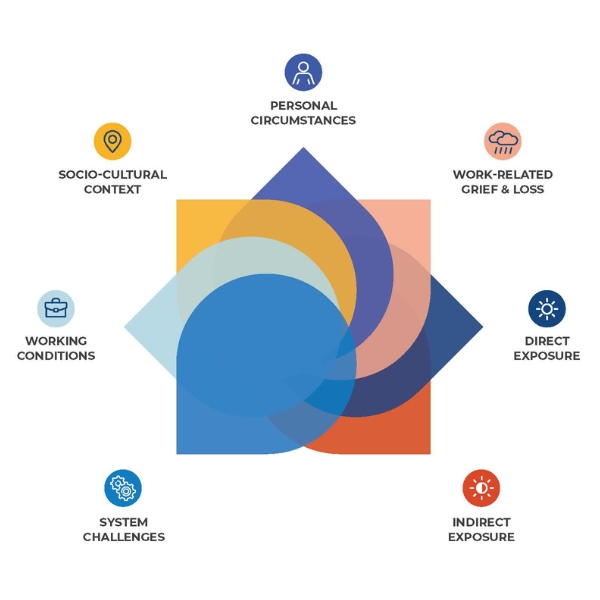A Shift in Perspective
Why It’s Time to Stop Using Compassion Fatigue
A Shift in Perspective
Why It’s Time to Stop Using Compassion Fatigue
About the Video
Over the past 25 years, the term compassion fatigue has become widely recognized. There are also many other terms being used by researchers, educators, and laypersons to describe the negative and cumulative effects of working in the helping professions: burnout, empathic strain, secondary traumatic stress, and vicarious trauma – just to name a few
This can lead to confusion as there is no consensus about what these concepts mean and what phenomena they are describing.
In this panel discussion, Françoise Mathieu, Diana Tikasz. Dr. Ginny Sprang, and Dr. Brian Bride explore the history of the term compassion fatigue and offer an evidence-informed argument for why the term empathic strain is more accurate.
About the Presenters

Françoise Mathieu
M. Ed, RP
Françoise Mathieu is an educator, speaker, and trauma-trained therapist. She is the author of The Compassion Fatigue Workbook, founding member of the Secondary Traumatic Stress Consortium, and the Executive Director of TEND.

Diana Tikasz
MSW, RSW
Diana Tikasz has worked in the teaching and health care sector for over 30 years and specializes in trauma-focused work. Diana is a TEND Associate and Organizational Health Specialist for the Roadmap to Organizational Health program.

Ginny Sprang
Ph.D
Dr. Ginny Sprang, is a Professor in the College of Medicine, Department of Psychiatry at the University of Kentucky and the Executive Director of the UK Center on Trauma and Children.

Brian Bride
MPH, MSW, Ph. D
Dr. Brian Bride is a Distinguished University Professor and Director of the School of Social Work at Georgia State University. His is the developer of the Secondary Traumatic Stress Scale.



